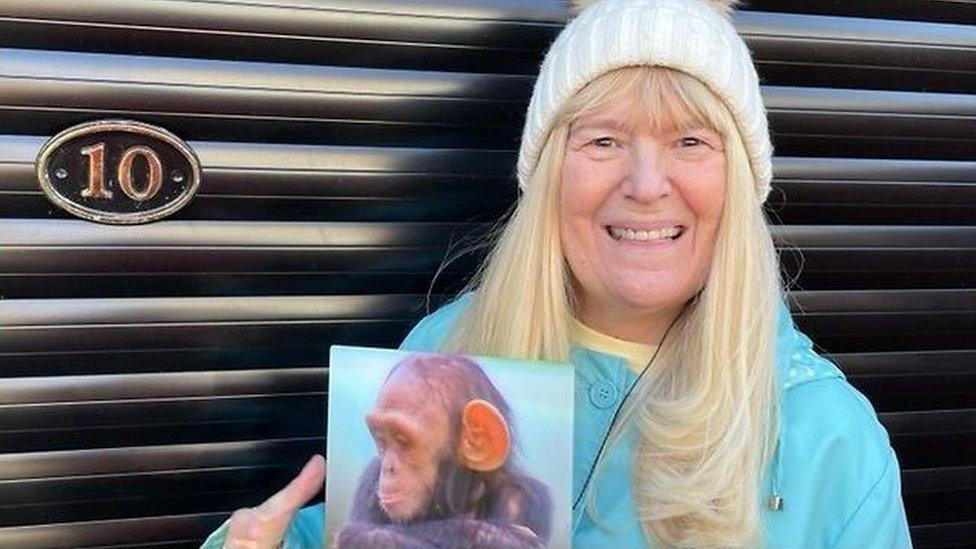Dorset's Monkey World plea on primate trade law change
- Published
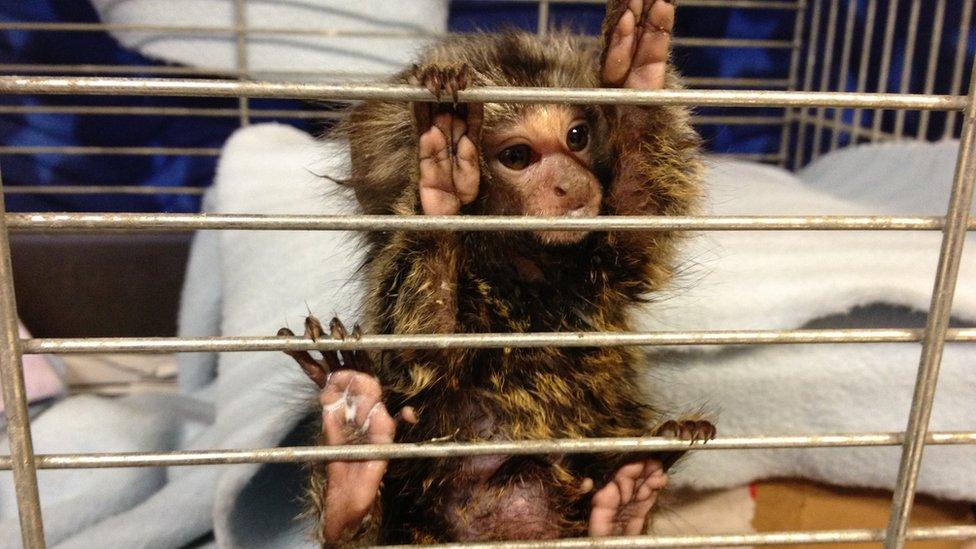
The monkey rescue centre in Wareham has 65 acres of sanctuary and is home to more than 250 primates
The boss of a primate rescue centre is campaigning for a change in the law that would mean pet monkeys could no longer be kept in bird cages.
Alison Cronin, director of Monkey World in Dorset, is backing a Department for Environment, Food and Rural Affairs (Defra), external public consultation which would see tighter rules for keeping primates.
The changes would involve compulsory indoor and outdoor enclosures and specialist veterinary care.
The consultation, external closes on Tuesday.
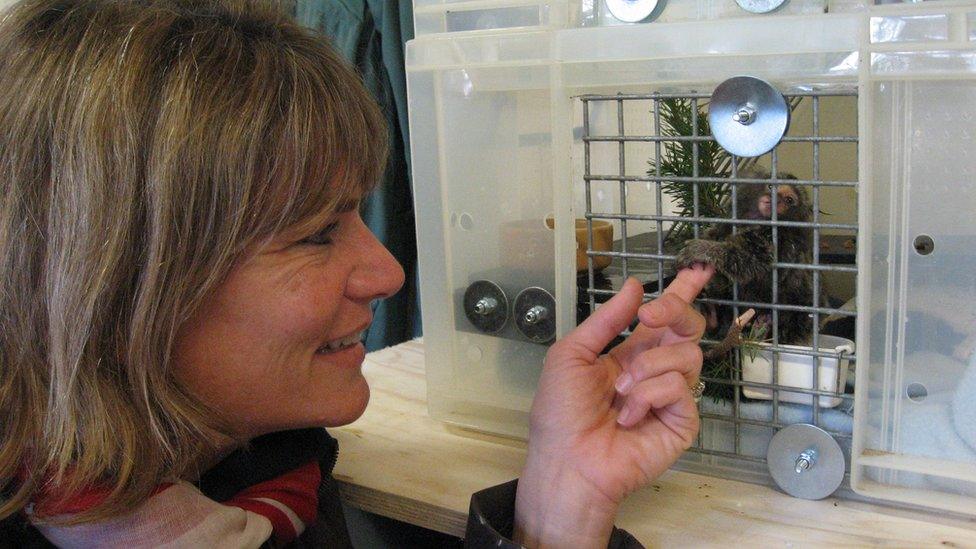
Monkey World's director has been working with the government to create laws to protect monkeys that are kept privately in England
Monkey World's director claimed social media had driven the small monkey trade over the last decade, and that a lack of detailed legislation meant they were being sold "like goldfish".
Ms Cronin claimed the trade was "out of control" and she had seen people selling them in bird cages to "individuals who don't know what they're doing".
"A lot of people who purchase these monkeys from unscrupulous breeders and dealers think it's OK because it's not illegal," she added.
Following a consultation in 2020, external, the government said it would ban the keeping, breeding and selling of primates by those without "a relevant licence".
But now a specialist primate keeper licence is being proposed because the monkeys' welfare standards were not originally considered.
Ms Cronin said the changes would make it compulsory for primates to have companionship of their own kind and appropriate nutrition.
She said: "If you're keeping a monkey, it will have to have outdoor enclosures, specialist veterinary care and you'll have to keep records, just like every wildlife park or rescue centre in this country."
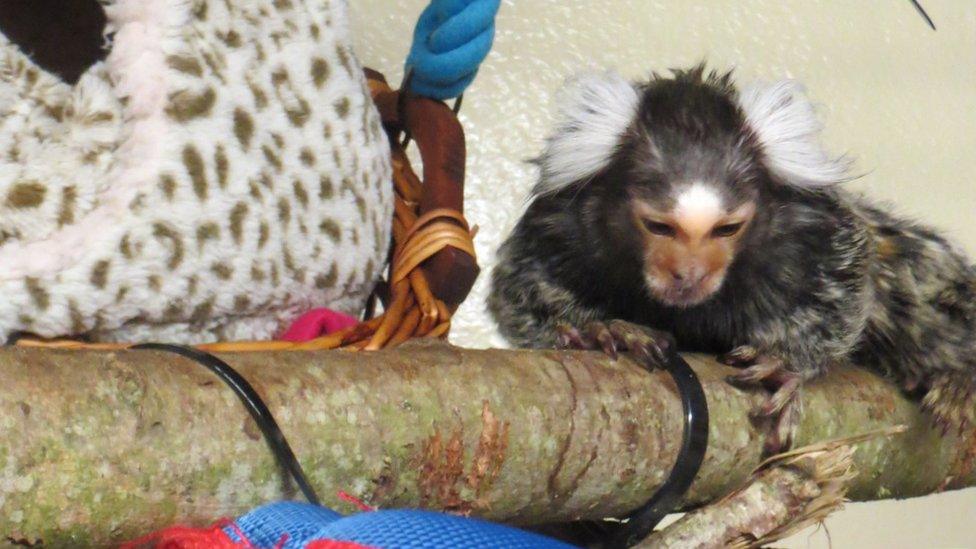
Since 1989, Monkey World has rescued 129 animals, across 15 different species, from the UK pet trade
Monkey World's head of small monkeys, Steph Sawyer, said three-month-old marmoset Leo arrived with rickets caused by a vitamin D3 deficiency.
She said he had been sold into the pet trade, where primates are often kept in "a hamster or bird cage in someone's living room".
Leo was initially unable to move his back legs because of his condition, but because he was rescued as a baby he has managed to recover, Ms Sawyer said.
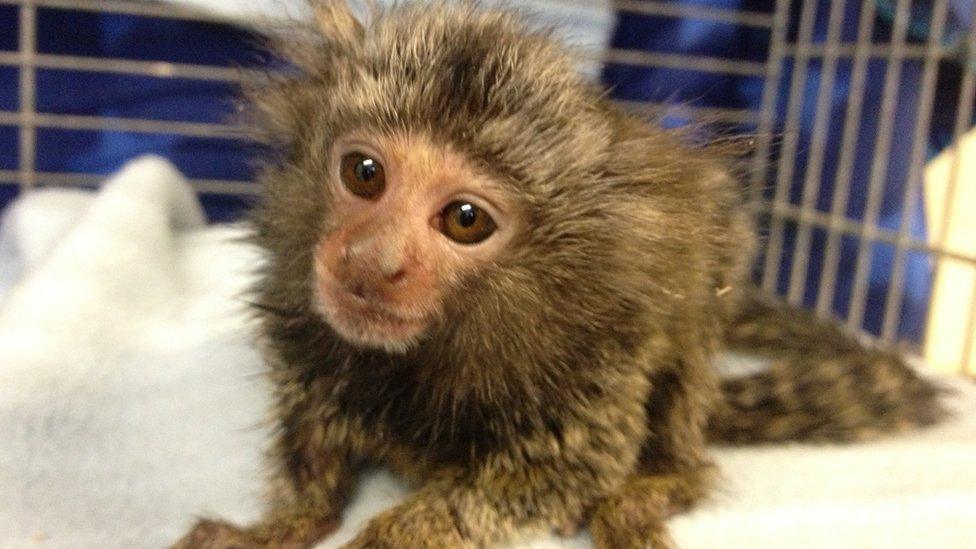
Leo was found to have rickets when he arrived at the sanctuary
But she said some monkeys, like Leo's partner Sydney, suffer lifelong disabilities after years in the pet trade.
"She can't extend her arms and legs, she can't jump and she will always be like that because she was rescued at a much later stage where the damage was irreversible," she said.
"It's hideous the condition some of these animals are in, it's absolutely heart-breaking."

Follow BBC South on Facebook, external, Twitter, external, or Instagram, external. Send your story ideas to south.newsonline@bbc.co.uk.
- Published8 February 2023
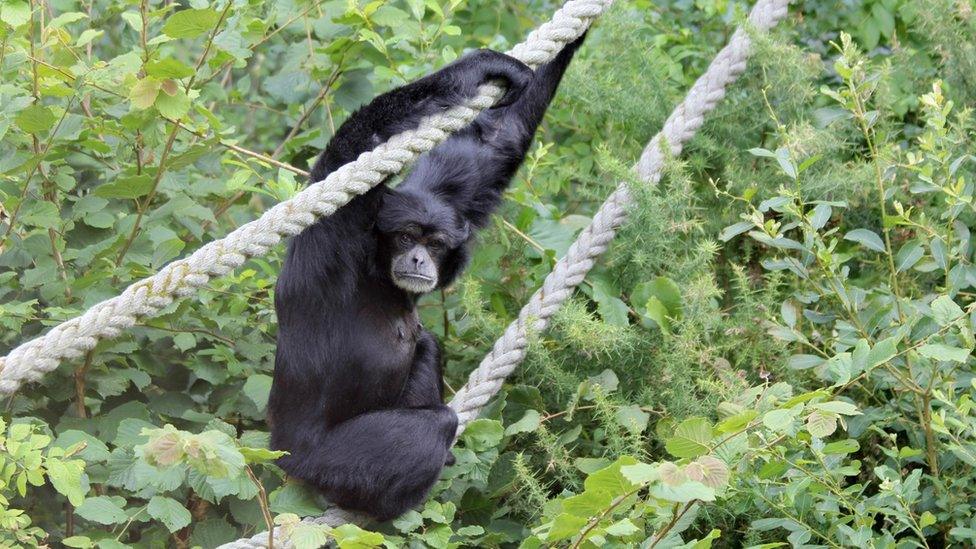
- Published22 April 2022
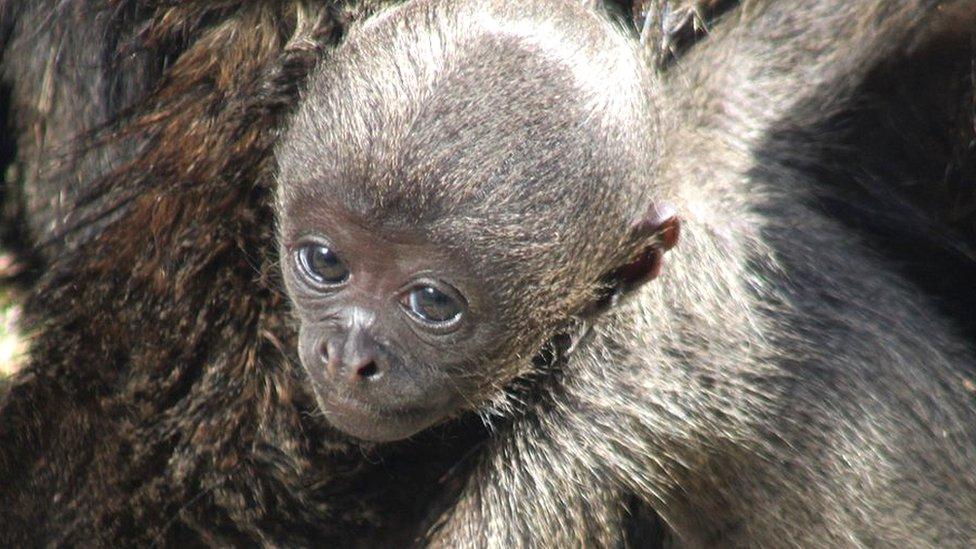
- Published15 June 2022
